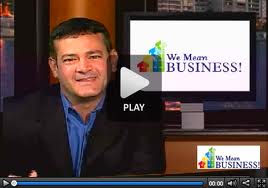A simple and proven guide to service recovery
Picture your customer, her brow furrowed with frustration and her arms crossed tightly across her chest. Her lips are pressed into a thin line, and her eyes reflect a mix of disappointment and irritation. She gestures animatedly, expressing her dissatisfaction with the product or service she received. Despite your attempts to appease her, she remains visibly upset, her body language tense and her voice edged with frustration. This image captures the essence of an upset customer — a potent reminder of the importance of delivering exceptional customer experiences to avoid such situations.
When a customer has unmet expectations and/or their experience goes sideways, it’s important that you work to recover by having a thoughtful and effective process that you — or anyone on your team — can follow. This is a “Moment of truth” in the eyes of that customer — an opportunity to demonstrate care; how you handle difficult situations; your willingness to reach resolution, and; your desire AND ability to help turn things around. Although it can seem like a daunting task, when you have a solid process and you follow it, success is just on the other side. And developing this skill can be quite rewarding.
A commitment to service recovery is what separates average companies from remarkable ones. So here’s your 5-step process for service recovery:
Listen
It’s a basic need. We all have a desire to feel heard, yet many people will tell you that they don’t feel they are listened to enough in life. So, be a great listener! Distraught customers have a need to vent and may be at a point in their experience where you’re the first person to really listen to them.
Even if you’ve heard their same concern or situation from others a thousand times before, it’s important that you fully hear them out. Don’t cut them off … even if it’s to rush into a solution. Take it a step further: prove you’ve listened fully by recapping what you just heard. Nothing diffuses a bad situation quite like demonstrating active/engaged listening. Apathy is an experience killer. Empathy is your friend.
Empathize
Empathizing takes listening to another level. If listening says to others, “I hear you.” then empathizing says, “I feel you.” People have a desire to feel understood. As that customer is sharing their experience, imagine how that must have felt for them (even if that is different from how you would personally process a similar circumstance). Let your voicetone convey your concern. Allow a deeper level of care and understanding to come through in your delivery.
You might even say, “Wow. I can only imagine how that left you feeling.” Those ten words have the power to foster connection with a stranger … and leave them feeling understood and cared for.
Apologize
If you have a tough time with apologies, it may be because you hold apologies in the same regard as guilt, blame, fault, and/or shame. Let’s reframe that. Instead, this is about taking ownership/responsibility for their experience. It may not be our “fault” … but it’s still our problem. You may not see it as a “big deal,” but it likely is to that customer … a sincere apology is always justified and appropriate.
Some examples of how to apologize:
“I’m sorry you had to endure that.”
“I’m sorry you had to experience that.”
“I’m sorry that things didn’t go more smoothly for you.”
“I’m sorry this happened.”
“I’m sorry that we’ve let you down.”
“I’m sorry we didn’t do a better job for you.”
If you were the customer, wouldn’t this type of apology make you feel a little better, and cared for … as long as it was sincere? Apologizing might just be the most important step when working to calm a customer, proving that you care, suggesting a willingness to make it right, and exhibiting humanity.
This part gets missed too often, and that’s a huge mistake. Even if you follow the rest of this formula by listening, empathizing, solving, and thanking, the customer may end up feeling incomplete without a sincere apology. It’s critical. Thoughtful apologies are underrated. It’s an easy action that takes very little time and effort but can add tremendous value and work wonders in de-escalating a bad situation.
Solve
Now that you’ve heard them out and sincerely apologized, it’s time to solve the issues. Take ownership and see it through. Even if this means involving other parties, be sure you’re doing more than simply “Passing the buck.” Make a warm connection to the team member(s) who will take the baton and run with it … but be sure to follow up, ensuring promises are kept and that the customer is left feeling complete … if not WOWed. Note: sometimes, it’s too late to solve – it’s water under the bridge. In these cases, the customer needs to know they’ve helped affect positive change; that the conversation did more than fall on deaf ears with no intentions of improving, if only for the sake of others down the road.
Pro Tip: when a customer is clearly fuming and emotions are running high — and after you’ve listened and apologized — it’s OK to let them know you’re going to look into the situation (with the goal of making things right, of course) as long as you make a time commitment on when they’ll be hearing back from you … and you honor this commitment. By default, you’ve also built in a cooling-off period for that person. In addition, the simple act of keeping that promise by calling them back (by the time you said you would) has earned you favor – in other words, you’ve built trust in the customer’s eyes by demonstrating follow-through; integrity.
Thank
They didn’t have to tell you about their negative experience. They could have instead chosen to NOT invest any more time on this, NOT given you a chance to make it right, and likely moved directly into bad-mouthing your team and your company via negative word-of-mouth and even negative online ratings and reviews … and they still might have … had you not jumped into service recovery mode.
Taking the time to bring matters to your attention is a gift and they should be acknowledged for it … in that spirit: “Mr. Customer, thank you so much for bringing this to my attention. If you hadn’t, I might not have known and we wouldn’t have had this opportunity to learn and grow from it; to address it with our team and improve our process for others. You’ve helped affect positive change and I view our conversation today as a gift. Thank you!”
L.E.A.S.T. — Listen. Empathize. Apologize. Solve. Thank.
There are only 5 steps here. All five matter. All five are critical in resolving a challenging customer experience. Listen. Empathize. Apologize. Solve. Thank. And you’re on your way to a successful outcome. Heck, you might even create a “Raving fan” in the process. Some of our most loyal customers (and their referrals) have been the result of working as a team to turn a bad situation around.

 Until recently, my wife and I had been housing much of my best friend’s furniture for the previous three years (long story). One Saturday morning, a moving company spent two hours removing all the large pieces from our home. The three movers were great. They showed up on time and worked hard. They were polite and did a careful job.
Until recently, my wife and I had been housing much of my best friend’s furniture for the previous three years (long story). One Saturday morning, a moving company spent two hours removing all the large pieces from our home. The three movers were great. They showed up on time and worked hard. They were polite and did a careful job.


















